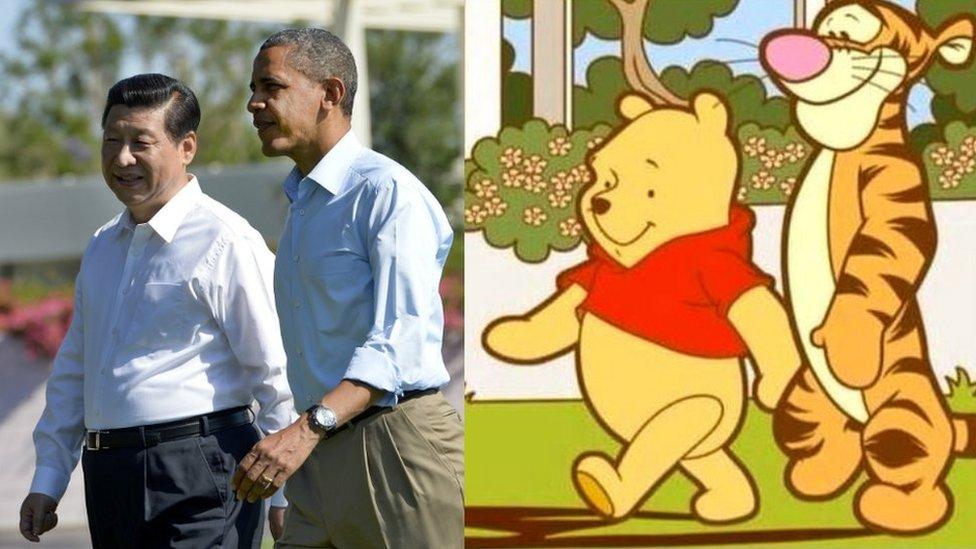China cracks down on video parodies
- Published
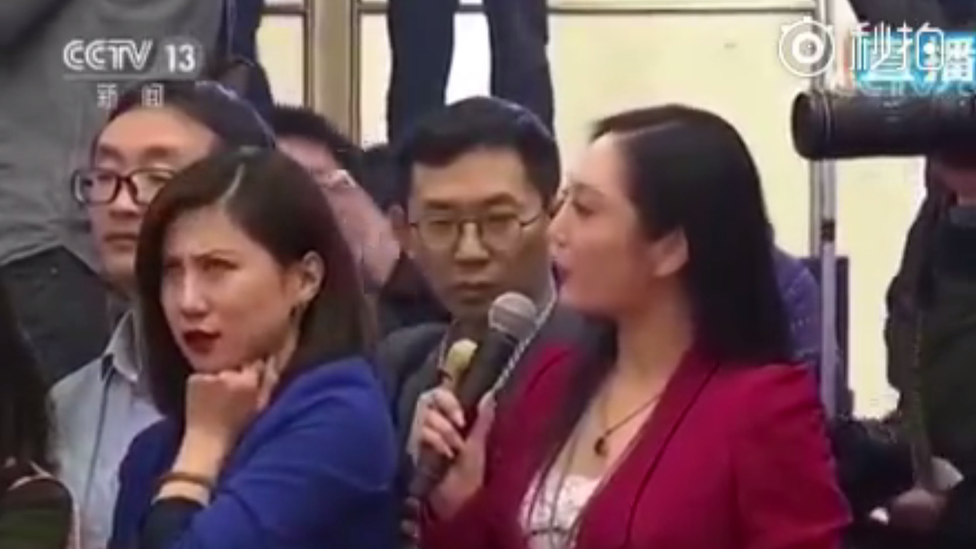
This female journalist appeared to be rolling her eyes at a fellow reporter's question
China's media regulator has announced a crackdown on video parodies.
It says video websites are banned from featuring videos that "distort or spoof" classical literature or art, and videos that re-cut or re-voice radio, TV and online programmes.
Chinese bloggers regularly produce spoof videos, including some that mock state media and current events.
China's internet is tightly controlled - although social media users often try to circumvent the censors.
In a new directive, the State Administration of Press, Publication, Radio, Film and Television said that video platforms should not allow the dissemination of videos that "had been edited to distort the original meaning".
"Recently some online productions have had very prominent problems and had an immensely bad impact on society," the regulator added.
Last week, a journalist was seen on TV rolling her eyes as another reporter asked a question, which appeared to have been pre-screened, at a news conference at China's National People's Congress.
A video of the incident went viral, and sparked several parody videos online, before posts on social media platforms using her name started to be censored.
Allow X content?
This article contains content provided by X. We ask for your permission before anything is loaded, as they may be using cookies and other technologies. You may want to read X’s cookie policy, external and privacy policy, external before accepting. To view this content choose ‘accept and continue’.
In 2013, state media reported that the government employed more than two million people to monitor and censor content online.
Correspondents say public discourse has been increasingly censored since President Xi Jinping came to power.
Last month, phrases such as "I don't agree", "constitution rules" and "Winnie the Pooh" were also censored on China's Twitter-like platform Weibo, after the Communist Party proposed removing a clause in the constitution which limits presidencies to two five-year terms.
The change has since been approved by the National People's Congress - effectively allowing Mr Xi to remain in power for life.
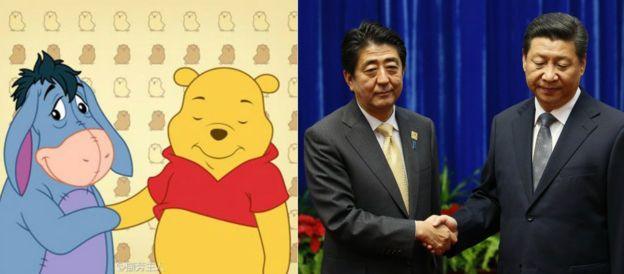
Some social media users have nicknamed Mr Xi "Winnie the Pooh"
- Published13 March 2018
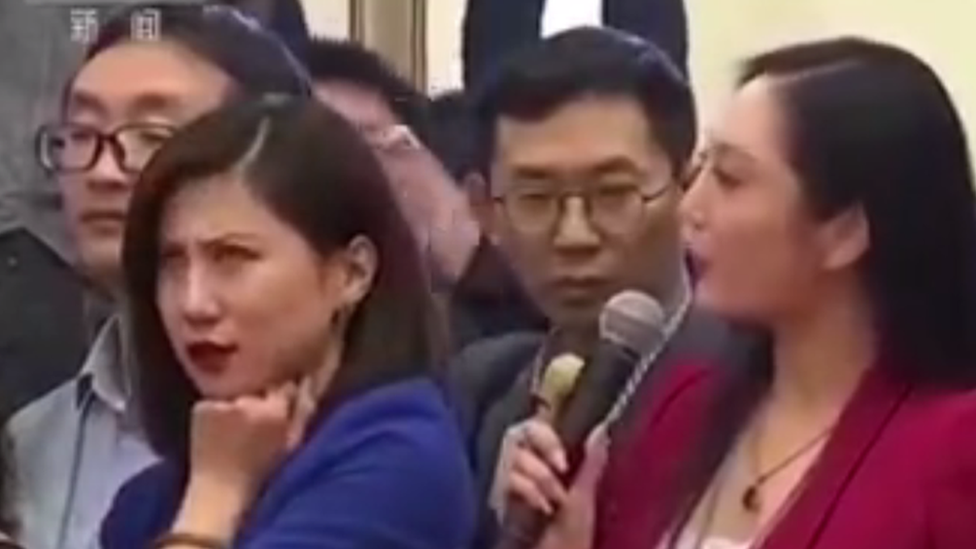
- Published20 March 2018
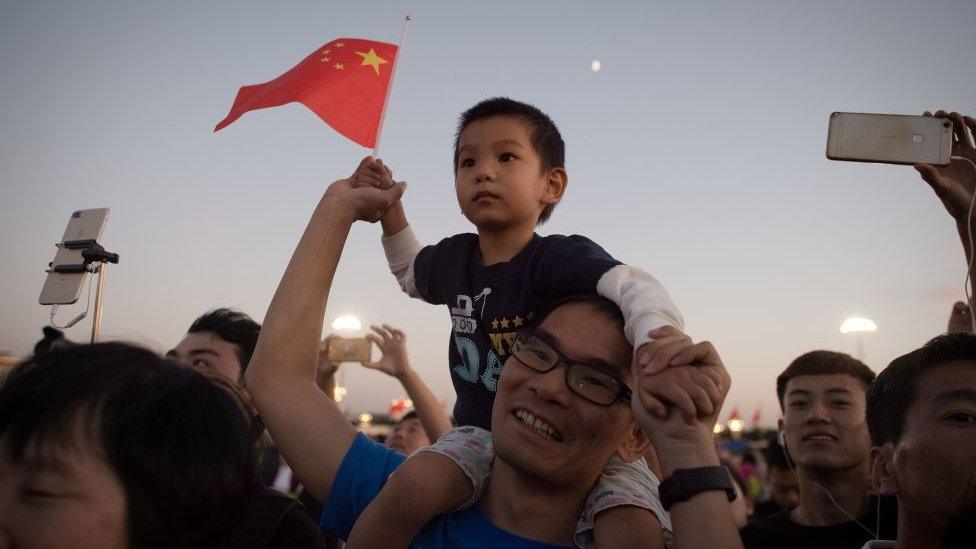
- Published26 February 2018
